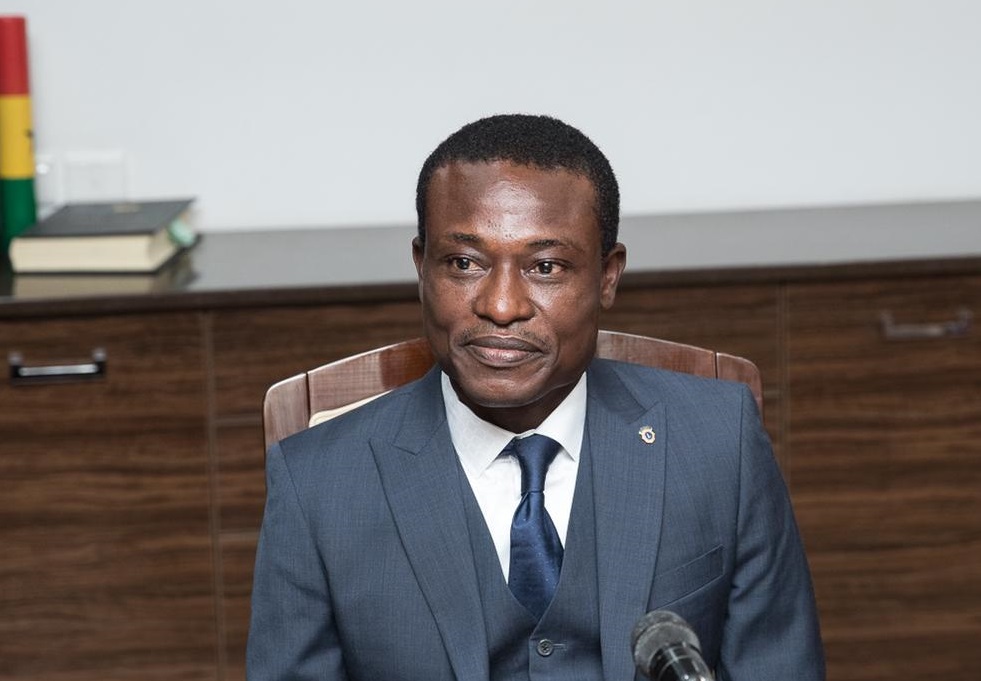
Special Prosecutor opens probe into banking sector collapse
The Office of the Special Prosecutor (OSP) has begun full scale investigations into the banking and financial sector crisis, which led to the collapse of some banks and other financial institutions.
The investigations targets “alleged corruption and corruption-related offences perpetrated by officials of the Bank of Ghana, banks, specialised deposit-taking institutions and financial holding companies.”
Advertisement
“Any official found culpable and complicit would be arrested and prosecuted,” the Special Prosecutor, Mr Kissi Agyebeng, said in a statement.
These institutions have been accused of corrupt-related offences during the banking and financial sector crisis.
To bolster investigations, the OSP has entreated members of the general public with knowledge of any corrupt activities carried out by any of the accused to lodge their complaints.
“The OSP invites members of the public who have knowledge of the commission of corruption or corruption-related offences to lodge complaints with the OSP against any official in this regard,” the statement added.
According to the Special Prosecutor, “all necessary and reasonable steps shall be taken to protect the safety and welfare of all informers, whistleblowers and witnesses.”
Meanwhile, the Office of the Special Prosecutor has given an assurance that any individual or institution found complicit will be arrested and prosecuted.
Financial sector clean up
In 2017, the Akufo-Addo-led government implemented the financial sector clean-up initiative to prevent the financial sector from collapsing.
This followed an asset quality review in 2015 and 2016 by the Bank of Ghana. The report noted that there were severe challenges with solvency, liquidity and asset quality in the country’s banking industry.
The financial sector clean-up started by the government in August 2017 led to the collapse of nine universal banks, 347 microfinance companies, 39 microcredit companies or moneylenders, 15 savings and loans companies, eight finance house companies, and two non-bank financial institutions.
SEC and 53 Fund Management
The Securities and Exchange Commission also announced the revocation of licences of 53 Fund Management Companies.
A number of these institutions were found to have varying degrees of corporate governance lapses.
The total estimated cost of the state’s fiscal intervention, excluding interest payments, from 2017 to 2019 was pegged at GH¢16.4 billion.
The collapse of the institutions left clients in distress, as many of the customers have been struggling to retrieve their savings and investments. Hundreds of workers who were in the financial institutions were also laid off as a result.
The Bank of Ghana in 2018 announced plans to prosecute executives of failed local lenders suspected of dissipating depositors’ funds and insider dealing.
Culpable directors
Deputy central bank governor, Ms Elsie Awadzi, said the central bank was also considering barring culpable directors from operating in the Ghanaian financial sector.
“We are working very hard on submitting a dossier on each of these banks to the law enforcement agencies ... to further investigate criminal behaviour or what could potentially be criminal behaviour and to prosecute,” Ms Awadzi said.
The regulator has merged the assets of the collapsed banks into a new state-owned lender, Consolidated Bank Ghana, to protect depositors’ money and avoid a financial sector crisis.
“That has gone well so far and we are going to ensure that integrity is returned to the financial sector by ensuring that persons whose conduct contributed to the banks’ failure will not be shielded,” she added.Report on failed banks
In a report on Unibank, the biggest of the failed lenders and which ranked as the country’s sixth-largest lender by assets before its collapse, the central bank cited shareholders and other affiliates as taking for themselves a total of 5.3 billion cedis ($1.1 bln), representing 75 per cent of its total assets.
It said 3.7 billion cedis of the funds taken by shareholders were neither granted through the normal credit delivery process nor reported in the bank’s loan books.
But Unibank founder, Dr Kwabena Duffuor, rejected the charges.



